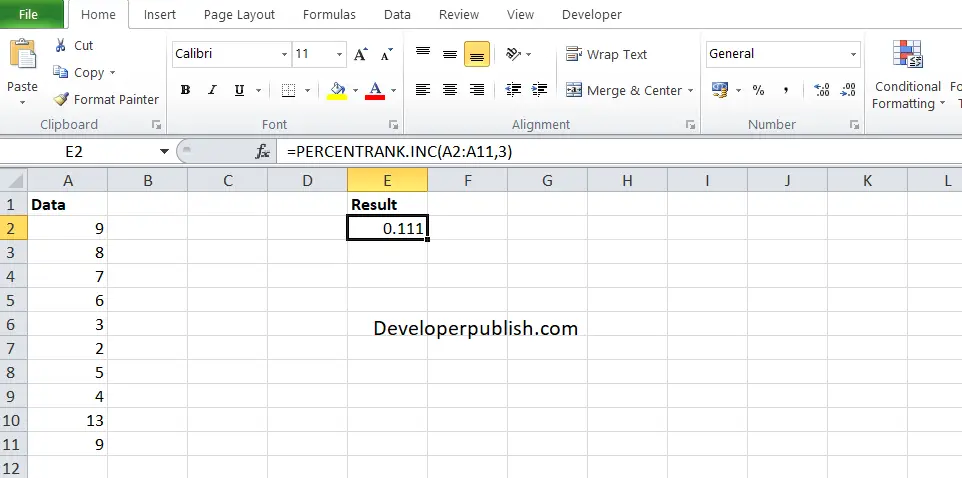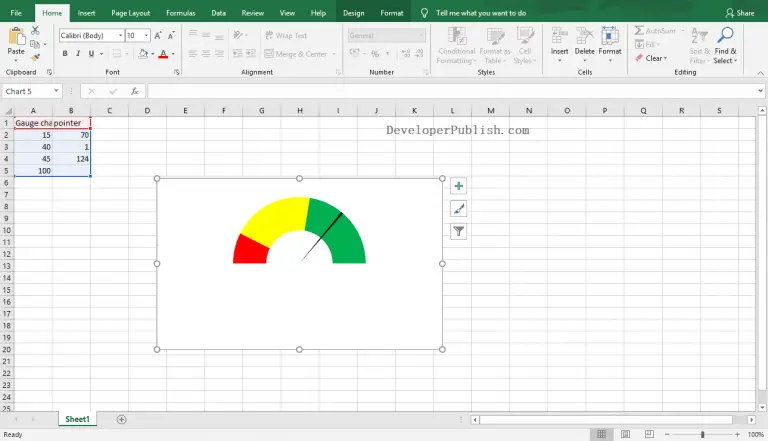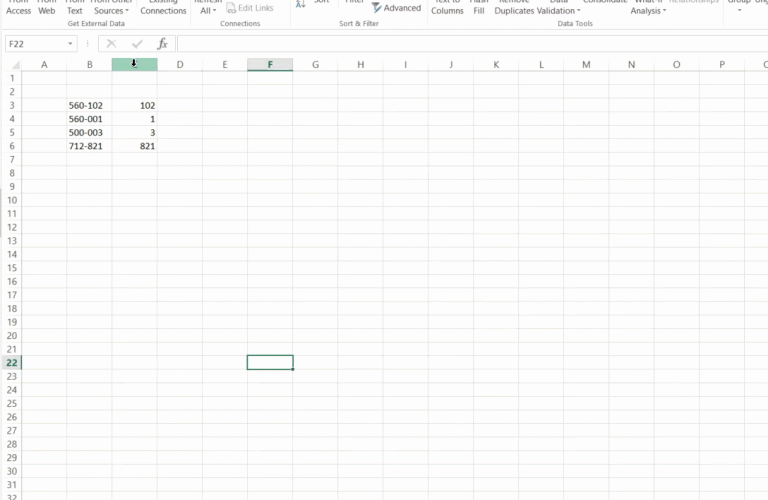In this article you will learn about PERCENTRANK.INC function, the formula syntax and usage of the function in Microsoft Excel.
PERCENTRANK.INC Function in Excel
The PERCENTRANK.INC function in Excel returns the relative rank of a value in a data set as a percentage representing the number of values less than or equal to the value.
Percentile rank is the most common method to interpret the standing in standardized tests.
Syntax
= PERCENTRANK.INC(array, x,[significance])
Arguments:
- Array – The array or range of data with numeric values.
- X – The value for which you want to know the rank.
- Significance – A value that identifies the number of significant digits for the returned percentage value.
When omitted, PERCENTRANK.INC uses three digits by default (0.xxx).
Usage Notes and Possible Errors
- When the array is empty, the PERCENTRANK.INC function returns the #NUM! error value.
- In-case of significance being less than 1, PERCENTRANK.INC returns the #NUM! error value.
- When x does not match one of the values in array, the PERCENTRANK.INC function interpolates to return the correct percentage rank.
How to use the PERCENTRANK.INC function in Excel?
Using this function in a WS is simple; all you need to do is enter the function as a formula of the cell in the formula bar.
Take a look at the given example

Enter the data in the respective columns and enter the PERCENTRANK.INC formula.
Formula: = PERCENTRANK.INC (A2:A11,3)
Here, A2 refers to the cell name or the cell address of the array and 3 is the X value (argument). You will get the result in the Result column.
Percent rank of 3 in the range A2:A11. Result is 0.111 because one value in the set is less than 3, and eight are greater than 3. Because 3 is found in the range (cell A6), the number of values less than 3 is divided by the sum of the number of values less than 3 and the number of values greater than 3, i.e., 1/(1+8)=0.111.



